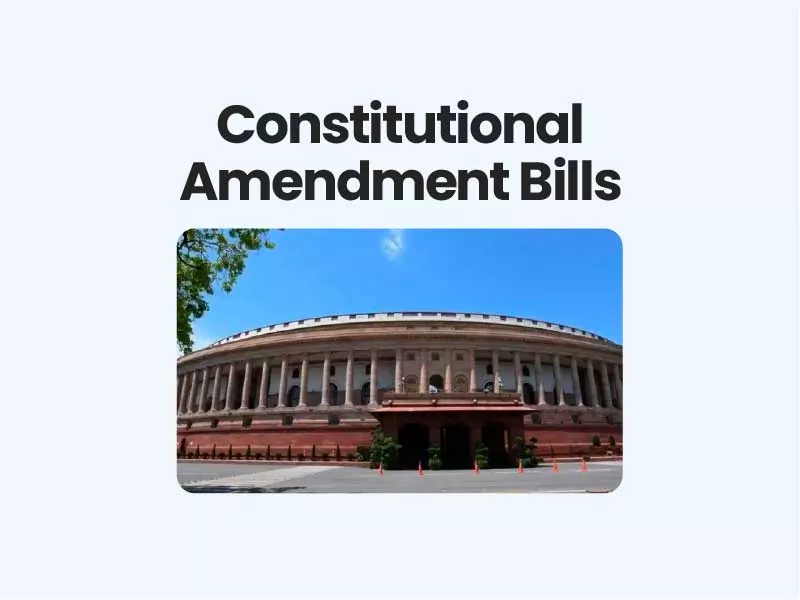Companion@360 → 7 Month programme to sharpen your writing skills → REGISTER NOW

Constitutional Amendment Bills
Women’s Reservation Bill (108th Amendment Bill)
- 1/3rd of seats in Lok Sabha and state legislative assemblies
- 1/3rd of seats reserved for Scheduled Caste and Scheduled Tribe be reserved for women of those groups
- Reserved seats be allocated to different constituencies in state or union territory
- Reservation to cease after 15 years of the commencement of the act
Constitutional Mandate
The government can provide for positive discrimination by way of Article 15(1) for women and vulnerable sections to enhance their representation and empower them. Article 38(2) provides that the government shall strive to reduce inequality in status, income and opportunity among its citizens
For the Bill
- Women Empowerment: Political empowerment through affirmative action can increase the agency of women in families and society. The evidence of panchayat reservation hold good
- Gender Representativeness: Currently only 10% of parliament is composed of women, the bill if passed can provide for gender diversity in voice of India’s temple of democracy
- Correct Patriarchal Power Structures: Improved women’s representation can equitably distribute power between genders in society
- Political empowerment of women can generate greater political will in resolving women specific issues like foeticide, rape, violence and social discrimination
- Gender sensitivity in parliamentary discussions can increase
- Gender Neutral Laws: Having women representation in parliament can help correct discriminatory laws of marital rape that reflects patriarchy
Read All Notes by UPSC Topper Ravisankar Sarma
Issues with the Bill
- Rotation of Constituencies may limit MP to understand and work for a specific constituency. Parties may then give ticket to male candidates
- Perpetuate Inequality of women as many would perceive that they are competing on favouritism rather than on merit
- Heterogeneous Nature: Providing reservation for women as a whole does not take into account the class, caste and power divisions among women of the country. Thus, it can bridge gender divide but may breed nepotism, favouritism and crony capitalism if women from upper classes, caste or political families are chosen
- No Reservation in Rajya Sabha and Legislative councils
- No Reservation for OBC women
123rd Constitutional Amendment Bill
The necessity of the Bill
- No constitutional status affects fund flow and independence of the commission
- No authority in providing advices to state and central governments for socio-economic welfare of the backward section
- No power to directly look into grievances of the backward class
- Streamline Jurisdiction: Remove power of NCSC to look into complaints of backward classes and vest it with the NCBC
The mandate of the Bill
- Provide Constitutional status to NCBC for improved functional authority and autonomy
- Provide authority to NCBC to look into specific complaints of backward classes regarding violation of rights
- Provide for advisory jurisdiction for NCBC regarding socio-economic development of backward classes to central and state governments
- Powers of civil court for NCBC to
- Summon people and examine oath
- Requiring production of document or public record
- Receiving evidence
- Investigating and monitoring constitutional and legal safeguards provided to backward classes
- Delineation of BCs: Under the amendment, the President is provided with the power to determine socially and educationally backward classes
- Present reports to President on working of safeguards and the report would be tabled in parliament and state legislative assemblies
Concerns
The President on behalf of Union government provided with the power to determine BCs takes away the federal power and authority vested in states to determine BCs
